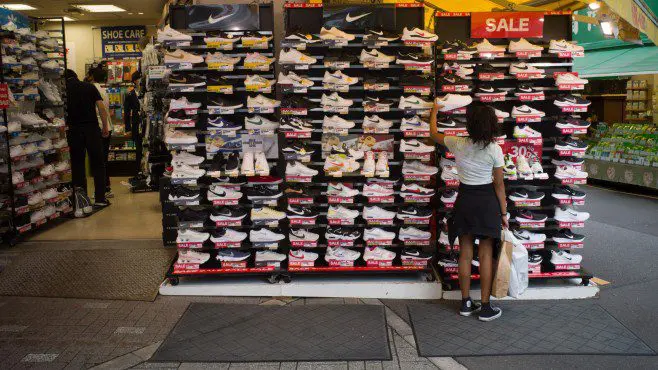The fashion industry is more to blame for creating carbon dioxide emissions than aviation and shipping combined. The rapid growth of fast fashion is particularly well illustrated by the example of sneakers: twice as many sneakers are sold today than in 2012 – as a result, the industry generates revenue of $ 70 billion a year.
The image of a “climate killer” does not suit any major sporting goods manufacturer, which is why some are actively trying to combat the bad reputation with recycling programs. Nike CEO John Donahue, for example, assures the company’s website that sustainability is a top priority.
“In the race against climate change, we are not just waiting for solutions. We create them. ” Some Nike stores include return boxes labeled “Recycle your old shoes.” The company promises to recycle old sneakers. According to worn-out shoes, a Nike Grind should be created – a material from which new shoes, clothes or even sports equipment.
However, investigations by the German channel ARD, the weekly newspaper Die Zeit and the startup for investigative journalism Flip now show that under the guise of the recycling program, which the group tries to present as particularly sustainable, new goods are systematically returned, such as returned by customers. just a few days after purchase. After the investigation, employees of a recycling factory in Herenthout, Belgium, threw new shoes into a machine, in which they were then destroyed. In addition, the editors have evidence that the goods are returned by customers, the so-called Retours.
The recycling hall is operated by Nike in collaboration with a local waste disposal company. Reporters ordered sports shoes directly from Nike on its German website and then equipped the shoes with a GPS receiver and sent them back to Nike. Journalists managed to trace the way back: the shoes were brought to the recycling facility in Herentaut for a short period of time and then destroyed.
Asked by the weekly, a Nike spokeswoman acknowledged that at least Retours, “which show signs of possible damage or signs of wear and tear,” are being destroyed and recycled. Speaking only of “signs,” the company opens up a wide field for interpretation. The group denies the possibility of new, flawless shoes being destroyed. “Unused and flawless items are returned to the shelves for resale,” the company explains.
The destruction of returned goods that are fit for use is prohibited in Germany. Christopher Stolzenberg, a spokesman for the Federal Ministry of the Environment, described the case to Die Zeit as a possible violation of German recycling law. “Under waste law, avoiding waste is a top priority and an advantage over all other disposal measures, such as recycling,” the weekly quoted Stolzenberg as saying. According to him, when products are sold, it must be ensured that their usability will be maintained and they will not turn into waste. A German government is now expected to take action, and the company is threatened with a fine of up to 100,000 euros. As Nike Deutschland GmbH is registered in Berlin, the Berlin Senate for Environment, Traffic and Climate Protection will be responsible for the decision.







